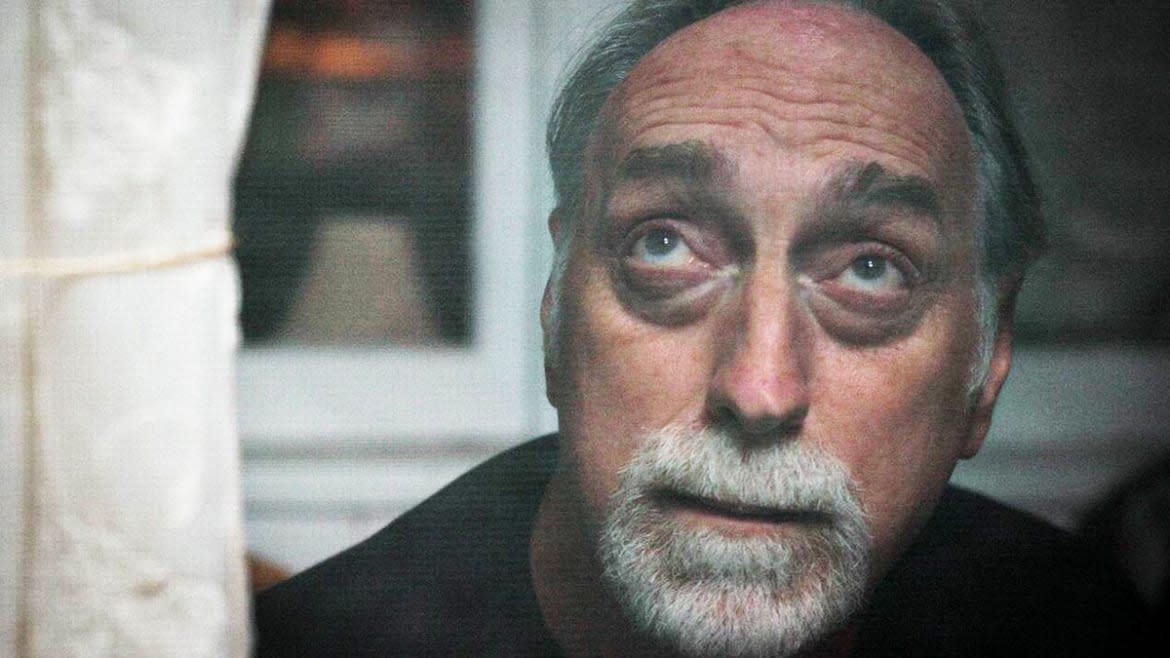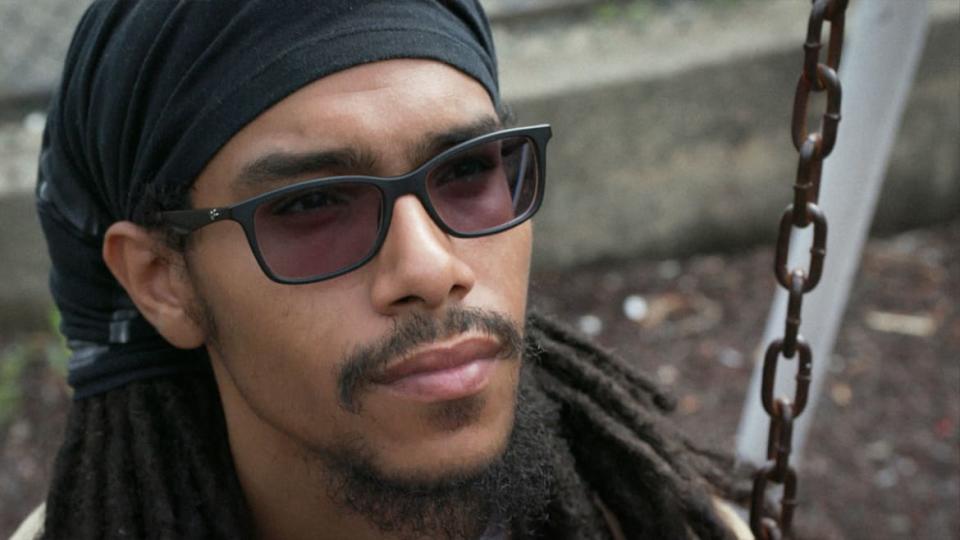Tribeca’s Strangest Doc Tells the Weird, Wild Stories of UFO Abductees

In 2021, Scarsdale, New York, resident Dave Rivera saw a UFO. While practicing meditation in a playground outside his apartment building, Rivera noticed an inexplicable orb in the sky that didn’t have a propeller, appeared to be teleporting about, was intermittently shining a bright light, and didn’t move like a plane or a drone. Stunned, the young man took out his phone and recorded this event, and his story was soon picked up by a local TV news affiliate—a fact that Rivera relays to one of the many customers frequenting the car wash where he works. Rivera subsequently sent his video to the Mutual UFO Network (MUFON) to determine the precise nature of what he’d witnesses, and to this day, he remains convinced that he had a legitimate close encounter of the third kind.
That said, Rivera also confesses that, on that fateful afternoon, he had eaten 1.9 grams of psychedelic mushrooms and was smoking a blunt, which makes his experience a far cry from reliable.
Such are the dubious anecdotes of They’re Here, a documentary (premiering at this year’s Tribeca Film Festival) about a collection of disparate New Yorkers who claim to have seen UFOs or been abducted by aliens. Daniel Claridge and Pacho Velez’s film is full of personalities that are as unique and sad as Rivera, and who are fixated on the possibility of aliens visiting Earth. What it’s short on, however, is a depth that might make it resonate as more than just a mishmash of kooky personalities with out-there views about themselves, the universe, and the little green men who supposedly monitor and analyze us from their flying saucers. Frustratingly superficial, it’s a non-fiction affair that cares less about saying something significant than about imparting quirky vibes.
‘A Desert’: The Wild Horror Film That’s Shocking the Tribeca Film Festival
Cookie Stringfellow states at the outset of They’re Here that aliens have plucked her from her current house on 14 different occasions. In each instance, she awakens from sleep with a tingly feeling before being removed via a bedroom window. Beamed up to an overhead craft, she’s given no food and drink (and not allowed to bring her own, or she would grab her bedside water bottle!), and once, she was offered a tour of the ship, whose high-tech gadgetry “was news to me!” This repeatedly happened, and “it was strange,” but about four years ago, she told the visitors that she’d learned enough and was done with this routine, and they accepted her request. Nonetheless, since the film depicts her attending a regional UFO conference, it’s apparent that Stringfellow hasn’t totally moved on from her magical meetings.
They’re Here may not make fun of Stringfellow, but it doesn’t try to get to know her. Instead, it provides a few spacey snippets of her conversing about her abductions (and telling the directors that their time to believe will come) before moving on to its ensuing points of interest. Aside from Rivera, those begin with Steve Falcone, who is an unofficial member of Stringfellow’s Rochester UFO Meet-Up crew, and who praises others in the group for their intelligence and goodness. Falcone has created a trivia board game called U.F.O.ria, and he sells it at a local UFO-centric street fair to likeminded men, women, and children. Also attending this gathering is Cheryl Costa and her wife Linda Miller, who call themselves “statisticians” and have written The UFO Sightings Desk Reference 2001-2020, which they’ve brought to various state schools in the hope of having it added to their curriculum.
During a sit-down with one educator, Cheryl and Linda are asked if they would care about their UFO-sighting data if it wasn’t related to extraterrestrials, and their silent faces speak volumes about the fantasies underscoring their work. They’re Here additionally spends time with Twon Wood, a fledgling stand-up comedian whose routines are all related to UFOs and his own sighting. Despite the support of his platonic roommate Victoria Jochnowitz, Wood bombs in the stage performances depicted in the film, and with good reason; he doesn’t tell jokes so much as simply make weird comments about abductions and crop circles. As Wood struggles professionally, Falcone undergoes hypnosis to tap into potential suppressed memories of personal E.T. incidents, and Rivera talks to his mother about his video and, ultimately, intention to move to Sri Lanka; he believes that, unlike in the U.S., he can live there without having to worry about things like poverty and greed.

It doesn’t take much to identify these people as lost, confused, and lonely, and the directors treat them with as much respect as is possible, complete with a few fantasy sequences in which their dreams of being visited by voyagers from unknown worlds come to life. Yet They’re Here fundamentally refuses to convey anything substantial about their lives outside of this obsession, and thus it’s impossible to understand the precise origins of their desire to promote their fictions. Wanting to be special and important, and to have an explanation for their emotional and psychological woes, are all ostensible motives for their tall tales, as is a hunger for community. But we learn so little about them during the course of this odyssey that the entire thing resonates as merely a mood piece about their yearning—untethered from vital contextual detail and, thus, meaning.
At the conclusion of They’re Here, Claridge and Velez send viewers through a sub-2001: A Space Odyssey vortex of light and color, but the effect is as underwhelming as their overarching investigation of these wayward souls. Under a form of hypnosis that doesn’t seem to have effectively worked, Rivera talks about seeing his younger self, wanting to give people the tools to unravel parts of themselves because it makes him feel good about himself, and the pain of being abandoned by the person who brought him into this world. Such ideas are certainly relevant to the material at hand, and yet they’re as incoherently expressed as everything else in the documentary. Although he and his compatriots may be striving for acknowledgement, love and respect, there’s ultimately not much to see here.
Get the Daily Beast's biggest scoops and scandals delivered right to your inbox. Sign up now.
Stay informed and gain unlimited access to the Daily Beast's unmatched reporting. Subscribe now.

 Yahoo News
Yahoo News 
